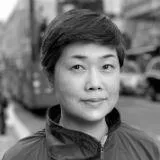Please note: this event has passed
Constraining Capital: Philippine Oligarchs and Their Selective Engagement with Foreign Investors
Alvin Camba (Johns Hopkins University)
Abstract
Recent scholarship suggests that what differentiates oligarchs from elites is control over material power or wealth. As the scholarship argues, the ultimate purpose of oligarchy is to protect their wealth from political or social upheaval. However, wealth defense occurs not only against domestic competitors but also foreign actors. Oligarchs however have selectively engaged with foreign capital across the world. What explains the selective engagement of the oligarch with foreign capital?
Categorizing where they accumulate capital, I argue that there are two types of oligarchs: fixed capital oligarchs that vend their access to the domestic markets to foreign capital and those with mobile capital that require foreign capital to expand their shares of the export market. Fixed capital oligarchs use their influence over political elites to tailor the state’s policies to their needs, such as incorporating foreign capital in their networks or keeping them out of the economy. In contrast, mobile capital oligarchs aim to liberalize certain sectors and open the economy to foreign investors. I use the Philippine case to compare fixed-capital oligarchy in real estate, domestic consumption, and land from mobile capital ones in e-gaming, commodity exports, and manufacturing.
The Politics of “High-End” Catch-Up: A Comparative Analysis of Business Groups in South Korea and Indonesia
Nahee Kang (KCL) & Kyunghoon Kim (KCL/SOAS)
Abstract
The role of business groups is accepted as a “necessary evil” in low- and middle-income countries in need a big industrial push at the “low-end” stage of catch-up. However, their role is not well understood in the “high-end” stage of catch-up. The widely-held view is that if business groups persist at this stage of development, it would have outlived their initial purpose, and signals the lack of robust competition policies, and even possibly a regulatory capture. However, building highly “complex economies” require not only a high degree of competition, but also coordination between firms operating in multiple industries and sectors. Hence, we ask what role do business groups play in the “high-end” stage catch-up?
Our argument is that corporate governance matters, and we explain why some business groups become drivers of complex economies, whereas others do not. Our findings bring to light the importance of understanding the role of business groups at the “high-end” stage of catch-up, and shows why high-income transition comes down to the politics of corporate governance reforms.
Discussant:
Dr Richard Itaman

